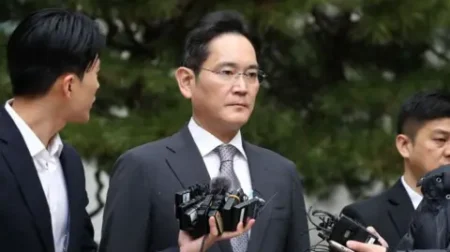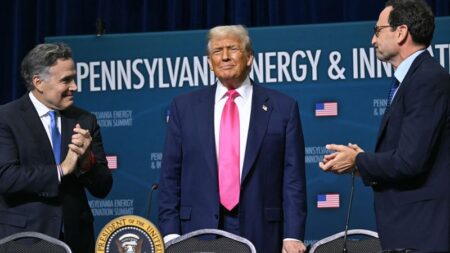In recent events, Argentine President Javier Milei has found himself at the center of controversy as he faces allegations of promoting a newly launched cryptocurrency named $Libra, which dramatically collapsed shortly after his social media endorsement. The cryptocurrency saw a significant surge in value following Milei’s mention but swiftly plummeted, leading to substantial monetary losses for many investors. Now, a federal judge has been assigned to evaluate whether these actions warrant fraud charges against the president.
Milei staunchly refuted claims of wrongdoing, asserting that he acted “in good faith” and likening investors’ complaints to those of individuals who lose money in casinos. His sentiments echoed a belief that investors should inherently understand the risks associated with such ventures. “If you go to a casino and lose money, what’s there to complain about when you knew the risks?” he argued on Monday, addressing the situation after a notably quiet weekend on his social media platforms.
In an interview with the Argentine television network Todo Noticias, Milei clarified that his social media post did not constitute an endorsement of $Libra, but rather a mere sharing of information. He deleted the post within mere hours after the cryptocurrency’s value began to decline. However, criticism from both political opponents and investors has surged, with some alleging that the launch exhibited characteristics of a “rug pull”—a deceptive scheme where developers attract investments before withdrawing, leaving others to incur the loss.
The president’s office has maintained that Milei was not involved in the development of $Libra. To further address the allegations, the Anti-Corruption Office has been tasked with examining the president’s actions to ascertain if any misconduct occurred during this incident. Milei defended his decision to quickly delete the post by claiming ignorance regarding the project’s specifics at the outset, asserting that he decided to withdraw his support upon acquiring new information.
Despite his explanations, political opposition has not been silenced. Many have threatened to initiate impeachment proceedings against him, although analysts believe that they may struggle to garner the necessary votes to achieve this outcome. Nonetheless, the unfolding scandal poses a distraction for Milei as he endeavors to push his radical economic reform agenda.
The legal situation surrounding his actions will soon escalate, as a federal judge scrutinizes whether the fraud allegations stemming from investor grievances deserve to be pursued in court. During his interview, Milei maintained a combative demeanor while asserting that he had “nothing to hide” and emphasized that investors in $Libra acted with full knowledge of the potential dangers involved. He further likened the investment process to a game of “Russian roulette,” underscoring the inherent risks tied to such financial endeavors.
As this situation continues to develop, it remains to be seen how the allegations will impact Milei’s presidency and his proposed policies. The political landscape in Argentina is fraught with challenges, particularly as public trust erodes in the wake of this scandal. With the opposition rallying and calls for impeachment gaining traction, Milei must navigate this storm carefully to preserve his agenda and maintain governance in a turbulent environment.











